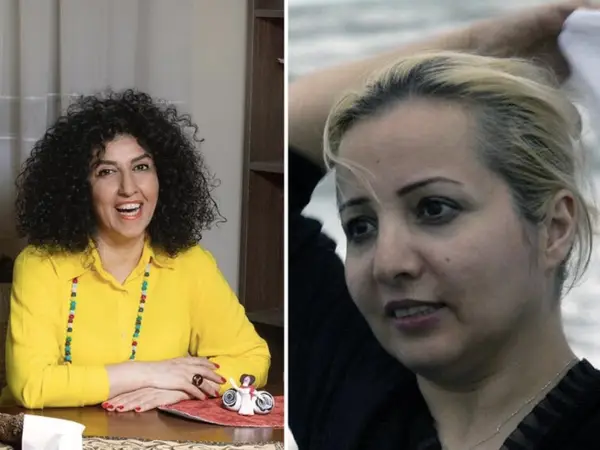Two prominent jailed Iranian rights defenders have urged the world to support efforts by Iranian civil society activists to establish democracy in the country.
In a message from the notorious Qarchak Women’s Penitentiary to the PEN Melbourne which on Tuesday held a gathering in solidarity with Iranian imprisoned writers, human rights defenders Narges Mohammadi and Alieh Motallebzadeh, warned about the social, political, and economic situation in Iran.
“As a religious dictatorship and anti-women regime, the Islamic Republic has created numerous crises for the country and its people. Extensive and systematic economic corruption of the regime, plundering the wealth of the nation, and costly international policies of the regime have paralyzed the economic foundations of the country and social and political suppression has weakened the civil society,” they said in their message.
They stressed that Iranian civil society activists have for decades fought to establish lasting democracy and social justice. “We expect you and the international community to support the efforts made by the Iranian civil society and its activists in any way possible,” they wrote.
Mohammadi and Motallebzadeh, both of whom are cofounders and chairs of the Defenders of Human Rights Center, say judicial authorities have been holding them at Qarchak Penitentiary with ordinary criminals including those serving time for murder and drug trafficking.
Health and sanitary conditions at Qarchak, located forty kilometers to the south of the capital Tehran, are very poor in comparison with prisons such as Evin where most political prisoners and prisoners of conscience are usually held.
The message was read at the event along with works of Iranian. literary figures. In the past few years PEN Australia has held several events in solidarity with Iranian writers.
The gathering also heard a message from imprisoned journalist Keyvan Samimi, head of the banned Association for Freedom of Press, sent from Semnan Prison, about 210 km from Tehran. The 74-year-old Samimi is currently the oldest political prisoner in Iran.
Iranian authorities have increased their pressure on civil society and political activists in recent months. They often harass or arrest family members of activists to pressure them to silence them.
In several tweets on Wednesday blogger and freedom of speech activist Hossein Ronaghi said security agents had stormed his father’s house and arrested his father and brother for a few hours. Ronaghi said their electronic devices were confiscated. “You have my address and know where I am. I am not going to escape or leave. Why are you harassing my family then?” he asked.
“In a country like Iran, death comes very cheap to intellectuals, freedom-loving people, and those who fight for freedom of expression … We, with total knowledge of the risks, will emphasise our obligation, which is to fight for freedom of expression and against censorship. But we expect all our friends, writers, intellectuals, and those who fight for freedom of expression around the world to support us,” prominent dissident Iranian poet and filmmaker Baktash Abtin said in an interview with PEN Sydney in June 2020.
Abtin died in January 2022 after contracting COVID-19 for the second time at Tehran’s Evin Prison. PEN International said it held the Iranian authorities fully responsible for Abtin’s death.
